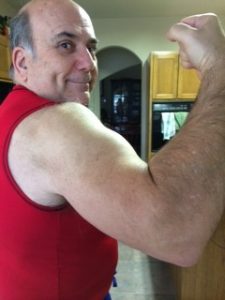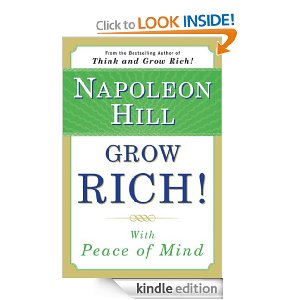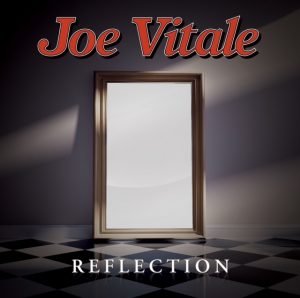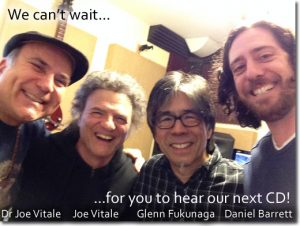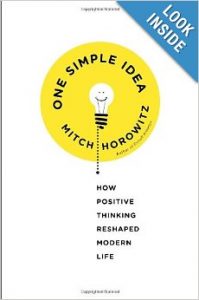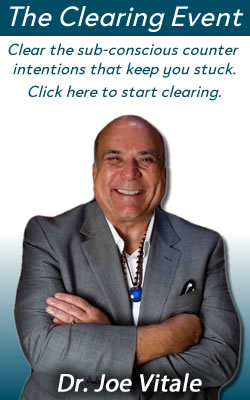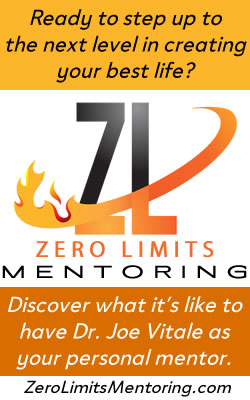Secret
Jimmy Carter's Question
Back in 1976, Jimmy Carter was running for US President and I was escaping from college at Kent State University.
I read his book, Why Not the Best?, and was fascinated. When Jimmy came to Ohio, I arranged to meet the candidate twice. It never went anywhere – well, it did for him – but I always remembered something I read in his book.
Jimmy told the story of applying for a job in the Navy and being interviewed by Admiral Rickover.
The Admiral asked how Jimmy stood in his graduating class at the Naval academy.
“I came 59th in a class of 840!” Jimmy proudly announced.
The Admiral asked in return, “Did you do your best?”
Jimmy paused and reflected — something I’ve always admired about him — and honestly admitted that no, he had not always done his best.
The Admiral replied, “Why not?”
This interaction caused Jimmy Carter to base his entire presidential campaign on doing the best. It also triggered the title of his 1976 book. And of course, he went on to become the 39th President of the United States.
That story made an impression on me back in 1976 and never left me. It’s still with me today.
Whenever I complete a project, I always ask myself, “Have you done your best?”
I won’t allow myself to slide and flippantly answer the question. I make myself really reflect.
Have I really done my best?
Is this all I can do?
Will a little bit more time and effort make it even better?
I often rewrite my books fifty times.
Or more.
I often rewrite these blog posts dozens of times.
Or more.
When I was completing my new songs for my forthcoming album, Reflection, I rewrote each a dozen times.
Or more.
And when I got into the studio with my band, I rewrote the songs again.
Why?
I was urging myself to do my best.
I was asking myself, “Have you done your best?”
When you look at the question from a sincere perspective, and don’t allow yourself any wiggle room in squirming out of an honest answer, you can usually see that you have not done your best.
At that point it’s up to you to make a decision and make it your best.
One of the reasons I have been so successful in so many fields is this stance of disciplining myself to do my best.
Even when I work out, following the advice of Bill Phillips and Scott York in my gym, I am always checking in with myself.
I simply ask myself what Jimmy Carter was asked: “Is it your best?”
If it isn’t, I work some more.
When I decided to be a writer in the 1960s, I would walk to the public library (two miles each way) and spend the entire day there studying books on writing. I remember pushing myself to learn the craft.
I would sit at a desk and follow the exercises in the books I was reading. I didn’t know about The Carter Question at the time. I was simply following my passion.
But ever since 1976, I’ve turned on the after burners and really question everything I write or create.
Is it my best?
Can I do better?
And now that I’ve taken up the saxophone, I’m doing the same thing.
I read the books, listen to the great players, study lessons online and with a personal tutor, and I always, always, always ask myself the Jimmy Carter question —
“Have I done my best?”
Again, being ruthlessly honest is the ticket to escape self-deception and self-sabotage.
Of course, you have to let go at some point and share your work with the world. But most of us are lazy and release mediocre work.
With such overwhelming competition in today’s world — there are 1,000 books published and 3,000 albums released weekly — it behooves you to do your best and only your best.
Good enough won’t cut it.
What about you?
Did you do your best?
Ao Akua,
Joe
PS – Late last year I noticed that Jimmy Carter was still working with Habitat for Humanity to raise funds and build homes. I instantly jumped on board to support Carter and his cause. I won first place in the fund raising contest and did well enough to receive an autographed photo of Jimmy and his wife, and won a free trip to New York City (which I passed to the second place winner). You can see the fund raising page I put up and promoted at http://helpbuild.habitat.org/site/TR/CWP/General?px=1936753&pg=personal&fr_id=1280
Your Brain Explained
My new favorite author just wrote the below “short explanation of nearly everything.” I love it and want to share it with you. It’s written by Dr. Loretta Graziano Breuning, author of Meet Your Happy Chemicals and other books I love. If the chart is hard to read, click on it to go to the author’s site, or download a full-sized PDF of the chart at http://www.innermammalinstitute.org/wp-content/uploads/2013/12/happy-chemicals-poster.pdf (Used here with her kind permission.)
Napoleon Hill's Final Secret
When I look around my office, I see success literature everywhere.
One of my favorites, especially in my early years, was Napoleon Hill’s classic, Think and Grow Rich.
You know that one. But I wonder if you know about another, smaller book he wrote 40 years later, when he was nearly 85 years old, called Grow Rich with Peace of Mind.
He said he wrote it because he wanted to demonstrate more fully not only that “there is more to life than making money” but also “that peace of mind in itself is a mighty force in helping you make money.”
He’s right on both counts.
But here’s something else he wrote – something intriguing you might easily overlook:
“I have said this book has been nearly 70 years in the planning. Quite true, but until recently I did not know it. I believe we are all guided by invisible sources of inspiration, and recently there came to me inspiration from a strange and very real source, revealing how much of my life has been spent in preparing me to write these pages, urging me to uncover my typewriter and get to work.”
Just reading that gives me chills — especially in light of my newest audio program with Nightingale-Conant – The Zero Point: How to Enter the Realm of Limitless Possibilities.
What is this invisible source of inspiration that Napoleon Hill describes?
The Zero Point.
The White Board.
Source.
Divinity.
Witness.
All that is.
Zero is not something “out there.”
It’s something within you, intrinsic and innate, that whispers to your heart, “Be this…Do this…”
It includes your mind, but goes beyond your mind.
It’s how you can think bigger than ever before.
Zero is alive – and you can make a request of it that is so magnificent that you’re constantly able to live a life of consistent expectancy.
This is not the same as intending something.
Intentions are from your ego, based on your past.
They’re based on what your mind thinks is possible, which means that intentions are based on current data.
They have built-in limitations.
Inspiration, on the other hand, can blow your mind.
How do you receive this kind of inspiration?
As I wrote in my recently released book, At Zero: The Quest for Miracles through Ho’oponopono —
“The key to modern day Ho’oponopono is letting go of any and all programs, so you can be one with Divinity, otherwise called at Zero. The secret is to delete the programming as you become aware of it. When you do, Divinity will come to you and through you.”
I believe when Napoleon Hill talked about peace of mind and inspiration, he was referring to the Zero Point. I believe he was quite familiar with it.
How else could he have written a book that reached around the world as many times as Think and Grow Rich?
Just as I said in my new audio program, the promise of Zero, of awakening to your Divinity, is such that it will “help you create limitless possibilities for yourself, your family, your friends, and the world at large – from this day forward, a new level of peace, joy, and confidence.”
Napoleon Hill – he was my kind of guy.
Inspiration was his secret, too.
Ao Akua
Joe
PS – Research shows you can change a habit in 30 days but you need help to do so. Here’s a new way to do just that when it comes to attracting more money My Wake Up Calls.
Mindless Sax
During the recent recording of my seventh album, titled Reflection, I mentioned the term “unconscious competence” to my band.
It refers to a mental state where you can perform without thinking; your body and mind automatically know what to do without concentration.
Since the term was new to the folks I was sharing it with, I thought it might be new to you, as well.
According to Wikipedia, the four stages of competence is a model of learning. It was created by Noel Burch in the 1970s for Gordon Training International. The four stages are —
- Unconscious incompetence – You can’t do something and aren’t aware that you can’t.
- Conscious incompetence – You can’t do something and are aware that you can’t.
- Conscious competence – You can do something but only with concentration.
- Unconscious Competence – You can do something without thought.
It’s useful to remember these steps when trying to do anything new.
For example, when you first learned how to drive a car, you were in the second stage: you can’t drive and you know you can’t. As you took lessons, you moved into the third stage.
Today, you probably drive your car without thinking about it. You are now an unconscious competent driver. That’s why you can drive and talk, listen to music, and even make a phone call. It’s second nature to you.
Driving is now automatic.
The problem in doing something new is wanting to be a master – unconsciously competent – when you don’t yet have the skills.
An example might be tossing you the keys to a huge tractor-trailer truck with 18 gears and telling you to drive it.
Good luck.
I’ve driven such rigs, and the eighteen gears are confusing.
I could urge you on, inspire you and motivate you, but if you have no practice with shifting eighteen gears, you won’t be able to do it.
No amount of pep talks will get you moving that rig.
No amount of saying “Trust your body” or “Your mind knows” or “You can do it!” will get you moving that tracker-trailer in a safe, reliable way.
Why?
You don’t yet have the skills to do so.
When I’m in the studio recording new music, I can’t jump to “unconsciously competent” in some areas yet because I haven’t learned the skills or put in the hours to make it as easy as breathing.
I have to slow down, focus, stay aware, and consciously become competent.
In time, I will move into unconscious competence as a performer.
Here’s another example:
Drummer Joe Vitale – the Rock and Roll Hall of Fame legend who plays with Joe Walsh, Neil Young and other icons – told me he can play the drums in his sleep. He is unconsciously competent in that area.
But he is not quite so certain on the keyboards.
There, he is a consciously competent performer.
He can do it but, as he told me, it takes concentration.
When we were recording, someone mentioned a baritone saxophone.
A what?
We called up the band Morphine, which leans on a bari sax to create its haunting sound, and listened.
I was instantly in love with the gutsy, sexy music.
I then looked at baritone saxes online.
Talk about intimidating.
Put one in my hands and I wouldn’t know how to hold it, let alone play it.
Of course, given enough time, lessons, and focused practice, I’d learn my way around that instrument.
So here’s how the four stages of learning look in this case:
- Unconscious incompetence – I never even heard of a baritone sax.
- Conscious incompetence – I know what it is but know I can’t play it.
- Conscious competence – If I took lessons and practiced, I could play it with focused awareness.
- Unconscious Competence – Given enough practice, I could pick it up and play it without thinking.
What did I do next?
I knew I loved the sound of the bari sax, so I found an Austin player and hired him. He came to the studio and added sultry spice to one of my songs. While I had his ear, I asked all kinds of questions about the sax and how to buy one, play one, etc.
I then contacted the sax instructor he told me was the best one.
I then ordered the book he told me to get: The Devil’s Horn.
And I then went online and researched vintage baritone saxophones, as I knew I wanted an investment grade instrument.
Do you see how this works?
I went from being oblivious about the bari sax (unconscious incompetence) to the second stage (conscious incompetence) and now moving into stage three (conscious competence). As long as I maintain lessons and practice, I can — given enough time — move into the fourth stage: Unconscious Competence, or “Mindless Sax.” (Couldn’t help myself). 🙂
But I couldn’t just pick up the sax and play!
All of this is a reminder to be easy with yourself.
As you learn any new skill, you need to relax, focus, absorb and keep practicing.
You can master virtually any skill, but it takes time, awareness, intent and discipline.
Just under three years ago, I couldn’t sing, play guitar, write songs or music, or record anything.
Today I have seven albums.
Seven!
The payoff of patience and practice is great success.
And you’re worth it.
Ao Akua,
joe
PS – My albums are described at these sites:
http://www.GetUpandStrut.com
http://www.HealingMojoMusic.com
http://www.AligningtoZero.info (a bestseller)
http://www.TheHealingSong.com
http://www.HealingRockMusic.com
http://www.AtZeroMusic.com (NEW)
Note: Album number seven is called Reflection. I’ll let you know when it’s available. 🙂
Law of Attraction Secret
According to Mitch Horowitz, in his new book, One Simple Idea: How Positive Thinking Reshaped Modern Life, the phrase “Law of Attraction” was first used in 1855 by a trance medium named Andrew Jackson Davis.
A trance medium?
That was news to me.
I have an entire library of vintage New Thought, metaphysical, and spiritual books, yet never heard of Davis.
Apparently Davis went into trances and dictated metaphysical messages. His medium side channeled a large body of work, including a six-volume set of spiritual laws called, The Great Harmonia.
In volume four, Davis used the term “Law of Attraction.” But Davis meant the law to refer to the kinds of spirits you attracted to yourself after you died and went to the other side. His term had nothing to do with the cause-and-effect law we think of today.
It was in 1892 that the law as we know it began to take shape.
Prentice Mulford, an early New Thought author, mentioned it in his famous book, Your Forces, And How to Use Them.
In 1897, Ralph Waldo Trine used the term in his classic book, In Tune with the Infinite.
And Helen Wilmans used the term in her 1899 book, Conquest of Poverty.
But the biggest push in getting “Law of Attraction” into mainstream thinking came in 1902, when William Walker Atkinson devoted an entire chapter to the subject in his book, The Law of the New Thought.
As you can see, the term has been around a long time.
Of course, the core LOA (Law of Attraction) concept of “your thoughts create reality” goes all the way back to Buddha, Jesus, and ancient cultures.
Only the phrase “Law of Attraction” is relatively new – at least from 1855, if Mitch Horowitz’s research is accurate (and I believe it is.)
All of this reading and research caused me to go back and re-read some of my favorite LOA authors, to be reminded of their stories and secrets.
One of them is Brown Landone, a prolific author who lived almost 100 years and wrote such gems as The Success Process and How to Turn Your Desires and Ideals into Realities.
In my 1927 copy of The Success Process, Landone uses chapter three to explain “The ‘Doing Process’ Which Always Succeeds.”
I smiled to see how much focus he put on taking action, one of the most overlooked steps in many modern Law of Attraction groupies.
But Landone spelled out that the kind of action you need to take is what he called “idealized doing.”
For him, you began with “vivid imagining.”
That meant using all your senses to experience the end result of what you wanted to attract.
But the next step was to envision the process of getting there.
While you may not know all the steps needed to attract or achieve a specific intention, the more you could use your senses to see the ideal action to take, the easier it would be to guarantee success.
Landone wrote –
“Your ideal of the end you desire to attain is the ‘star’ to which you should hitch your wagon of attainment. But, very much depends upon the way in which you do the hitching. Idealized doing always succeed.”
I love the fact that Law of Attraction has gone mainstream, thanks to movies and books like The Secret, and my own books such as The Attractor Factor, but I’m often dismayed that people have a superficial understanding of it.
For example, too many LOA practicioners think all they have to do is sit and visualize and what they want will “just appear.”
Well, it might just appear.
The car might appear in your driveway.
The love of your life might ring your doorbell.
But more often than not, you have to help the process along with inspired action.
Go to a car dealership.
Visit a matching service.
Do something.
Another example of an LOA fallacy is believing you get what you consciously think.
In reality, you attract what you unconsciously believe.
In other words, you can consciously believe, visualize and affirm all you want, but if you unconsciously believe something different, you won’t get your intention.
I’ve said it many times —
An unconscious counter-intention will always veto a conscious intention.
You can affirm “Money is coming to me” all day but if you unconsciously believe “Money is bad,” then you will not attract more money, or if you do, you will get rid of it fast.
Your unconscious is far more powerful than your conscious. You have to work with it to clearly and quickly manifest the results you prefer.
These points are just minor examples of the depth behind the Law of Attraction that most people aren’t at all aware of yet.
What can you do to understand LOA and use it correctly?
In my opinion, nothing is more powerful than having your own Miracles Coach.
Meanwhile, if you’ve tried to harness the Law of Attraction’s power in your own life to attract money (or anything else) and feel you’ve “failed,” then you need to see this all-new video from me http://428155.vitalesecrets.com?subid=missinglink
Expect Miracles.
Ao Akua,
Joe
PS — Some say the brief video you’ll see at this link is the most eye-opening they’ve EVER seen. Others say they just love the vest I’m wearing. http://428155.vitalesecrets.com?subid=missinglink What do you think?



